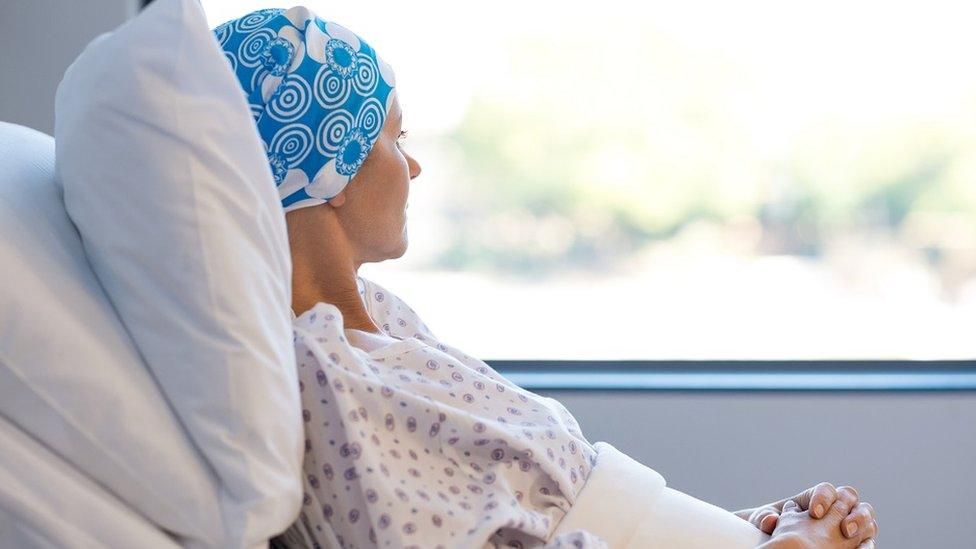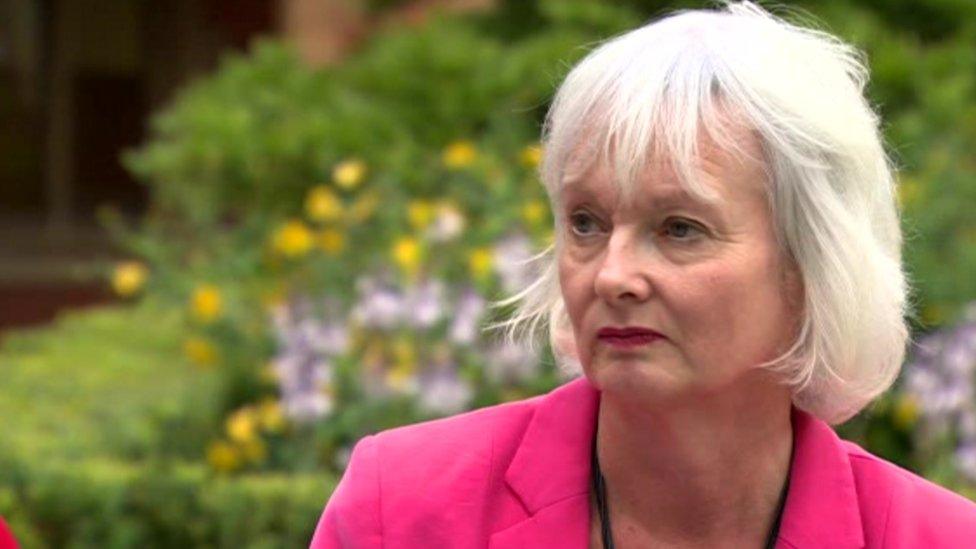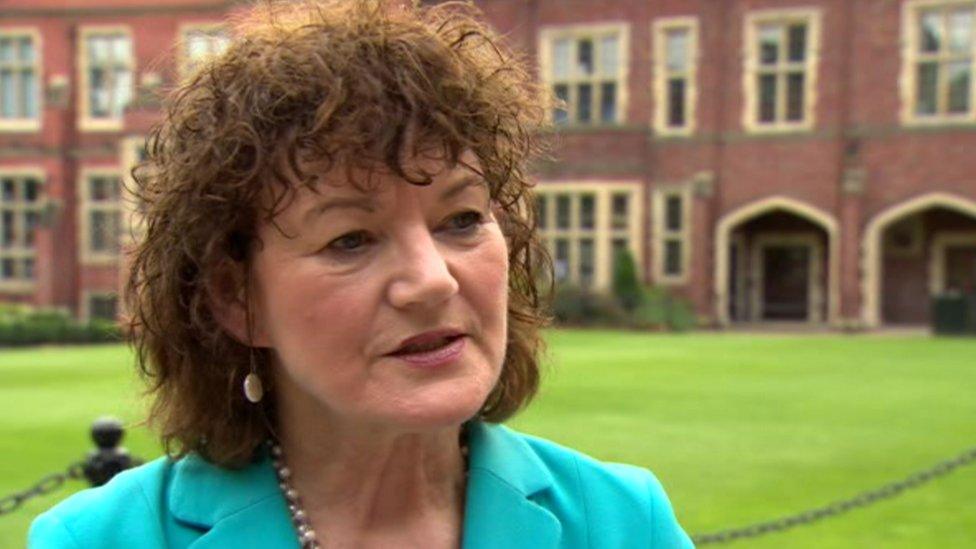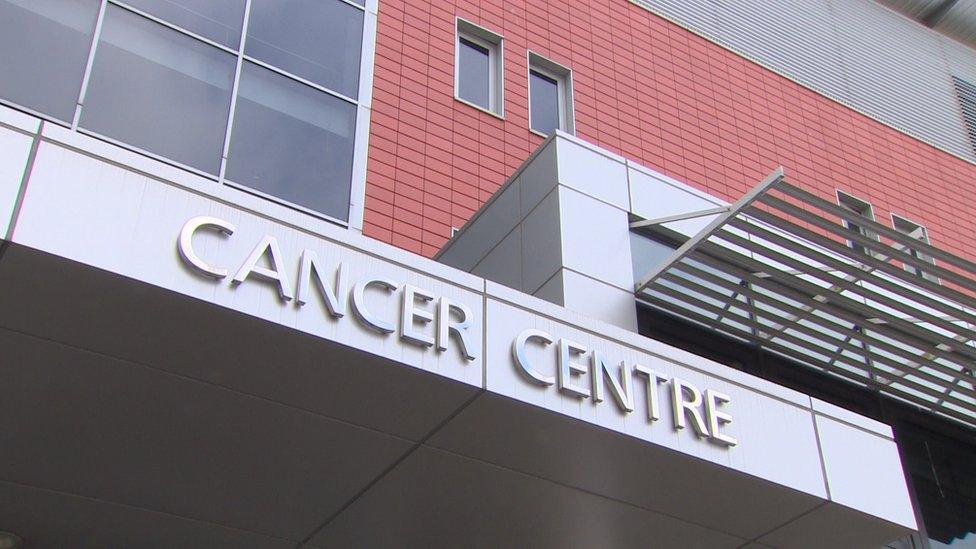Terminal cancer: A&E 'wrong place for dying patients'
- Published

The "very specialist care" required by cancer patients is not available in emergency departments, suggests the report.
Palliative and end-of-life care must become a priority in healthcare, a cancer charity has said.
Macmillan Cancer Support said emergency departments were not the right places to care for terminally ill people.
Their comments come after new research conducted by Macmillan and the NI Cancer Registry at Queen's University.
The report highlights the need for planning and communication around end-of-life care.
It also found late diagnosis of cancer to be a problem.
Among the research's findings is that three quarters of cancer patients who died in Northern Ireland in 2015 were admitted to A&E at least once in the last year of their lives.
Emergency departments cannot provide the very specialist care needed by cancer patients, said Macmillan's head of service Heather Monteverde.

Macmillan's Heather Monteverde said the timing and location of end-of-life care can be critical
Someone finding out for the first time they have cancer in an emergency department would not have the privacy needed or support from a specialist nurse, said Ms Monteverde.
"An emergency department is not the right environment for (the) patient or the staff who want to deliver very specialist care," she said.
"Terminally ill patients can't always choose where and when they will require emergency attention. But the timing and location of their end-of-life care is critical."
'They don't know where to go'
The report found that:
74% of the 4,316 people who died from cancer in NI in 2015 were admitted to emergency departments in the last year of their lives
More than half (53%) of these emergency admissions occurred outside normal hospital working hours
One in six (17%) people died within seven days of their last emergency admission - and almost all (95%) of these died in hospital
Ms Monteverde said that many come to the emergency department because "they just don't know where else to go".
"They haven't had the information properly communicated to them.
"Then something goes wrong and nothing is written down, there is no plan in place, and there is a feeling of what happens next?"

An ageing population presents new challenges, including increased instances of cancer, said Dr Anna Gavin
The report highlights challenges in delivering care for cancer patients and recommends:
Piloting extended hours for Northern Ireland's acute oncology service
Promoting the early detection of cancer
Additional training for healthcare professionals to improve communication and advance care planning
Establishing a direct point of contact between patients and their carers
Further development of community-based services
The number of cancer patients would increase due to Northern Ireland's ageing population, said Dr Anna Gavin from the NI Cancer Registry.
"People are more likely to talk about cancer now," she said.
"So as this report shows there is a real need for more services for people who are in their last year of life."
- Published18 July 2019

- Published8 July 2019
